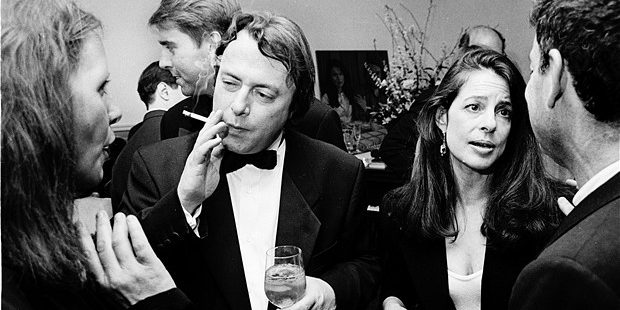
The Unfounded Hope of an Atheist
By Owen Strachan–
I found this poignant. It’s from a touching memorial for the writer Christopher Hitchens that his wife, Carol Blue, wrote. As many will know, Hitchens was a ferocious atheist. That fact notwithstanding, his wife has this to say about his final months:
The new world lasted 19 months. During this time of what he called “living dyingly”, he insisted ferociously on living, and his constitution, physical and philosophical, did all it could to stay alive.
Christopher was aiming to be among the five to 20 per cent of those who could be cured (the odds depended on what doctor we talked to and how they interpreted the scans). Without ever deceiving himself about his medical condition, and without ever allowing me to entertain illusions about his prospects for survival, he responded to every bit of clinical and statistical good news with a radical, childlike hope. His will to keep his existence intact, to remain engaged with his preternatural intensity, was spectacular.
The whole piece is worth reading. Let’s say this: first, you feel the humanity of this remembrance. It is clear that Hitchens was quite a man. He’s the type of thinker and leader who I wish I could have talked and laughed with. He was an outstanding intellect and a formidable opponent.
Second, an atheist can live with hope if they like. But it seems a bit odd to do so. At the very least, if there is no God, no meta-reality and meta-narrative–if the universe is a closed system–then there is surely no rational expectation that one should hope. You can hope in whatever you like if you are so inclined. But an atheist fundamentally believes that the universe is a closed system. There is no ought, as the Marquis De Sade famously noted, in such a world. There is only is. Correspondingly, there is no real hope, or even a strong reason to keep existing. Again, you can live if you like, or not. It’s yours to decide.
But in our natural state, we have a very difficult time denying the basic realities of the image of God. We are created. We are inclined to hope. God “has put eternity into man’s heart,” and so we quest after it regardless of whether our worldview directs us to do so (Ecclesiastes 3:11). Though we are fallen according to Genesis 3 and Romans 1, we naturally want to believe that life matters, and we act as if it does. Many of the most hardened of atheists, including Hitchens, want practically to find hope in the world, want desperately not to die. That is a profound testimony to the beauty of life–and only God could create such a life.
Hitchens wrote hundreds of thousands of words in defense of his atheism–and here’s the thing: his completely understandable will to live denies them all. This is not a triumphal realization, but a deeply sorrowful one, and it must move us to pray and engage those who are held together by Jesus Christ yet hate him, even as we once did.
He was in the world, and the world was made through him, yet the world did not know him (John 1:10).
(Image: Dafydd Jones/Telegraph)
Owen Strachan (Ph.D., Trinity Evangelical Divinity School) is Assistant Professor of Christian Theology and Church History at Boyce College. Previously Strachan served as Managing Director of the Carl F. H. Henry Center for Theological Understanding at TEDS and was the founding Associate Director of the Jonathan Edwards Center at TEDS. He previously served as Editorial Assistant and Teaching Assistant to the President at The Southern Baptist Theological Seminary. With Doug Sweeney, Strachan is the author of the five volume set, The Essential Edwards Collection (Moody, 2010). He is married to Bethany and is the father of Ella and Gavin.
[This article was originally published at owenstrachan.com]

